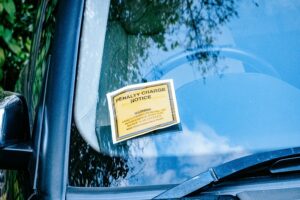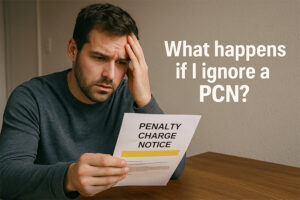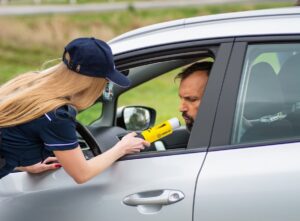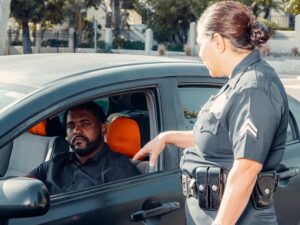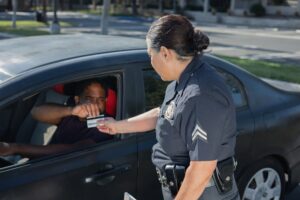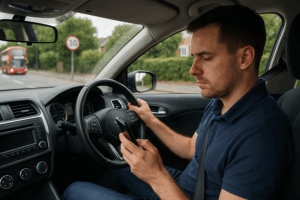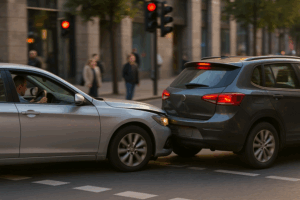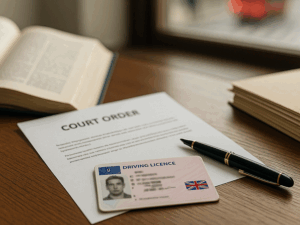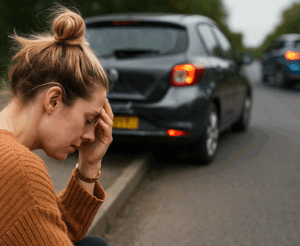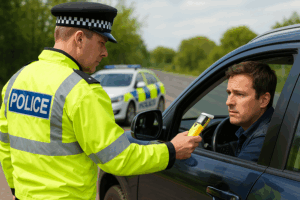How to avoid a speeding fine?

Speeding might seem harmless at times, but in the UK, even a minor breach of the speed limit UK can quickly turn into an administrative and financial nightmare, the dreaded speeding fine. Every year, thousands of drivers face penalties that can be costly, and in some cases, even lead to a speeding ban. Is speeding a criminal offence? Yes, it falls under driving and motoring offence law, making proper criminal legal defence crucial.
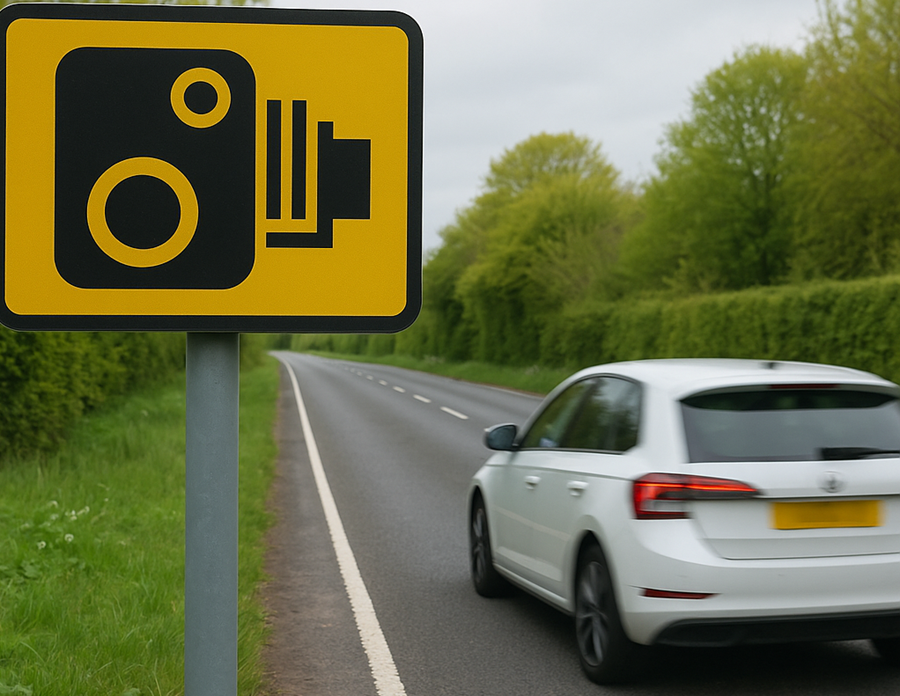
KEY TAKEAWAY: How can you challenge or appeal a speeding fine?
Enlisting the support of a solicitor specialising in driving and motoring offence law can make a significant difference to your case. Read on to find out the key steps that can help you dispute a speeding fine effectively.
Step 1: Understand your speeding offence
Before you can challenge a speeding fine in the UK, it’s essential to understand exactly what kind of speeding offence you’re dealing with and how the law classifies it.
What is a speeding offence in the UK?
A speeding offence occurs when a driver exceeds the legal speed limit UK on any road. The speed limit UK are clearly defined:
- 30 mph in built-up areas (unless stated otherwise).
- 60 mph on single carriageways.
- 70 mph on dual carriageways and motorways.
Exceeding these limits, even slightly, can result in a speeding fine, penalty points on your driving licence, or, in more serious cases, a speeding ban.
What penalties can you face?
Speeding penalty classifications depend on how far over the limit you were driving and are classified into Band A, B, and C based on the severity of the offence. Use a speeding fine calculator to estimate how much is a speeding fine:
Band A (up to 10 mph over the limit):
- 3 penalty points (SP30 offence code),
- Fine of 25% to 75% of your weekly income.
Band B (typically 11 to 20 mph over the limit):
- 4 to 6 penalty points or a short driving disqualification (7 to 28 days).
- Fine of 75% to 125% of your weekly income.
Band C (more than 20 mph over the limit):
- 6 penalty points or a longer speeding ban (7 to 56 days).
- Fine of 125% to 175% of your weekly income.
Step 2: Check the validity of the Notice of Intended Prosecution (NIP)
Before you are officially prosecuted for a speeding offence, you will typically receive a Notice of Intended Prosecution (NIP). This is a legal requirement that you can challenge.
Was the NIP sent within the legal time limit?
One of the most important rules surrounding the NIP is the 14-day rule.
- The police must ensure that the NIP is delivered to the registered keeper of the vehicle within 14 calendar days of the alleged speeding offence.
- If it arrives later than this, and you weren’t stopped at the scene, the notice may be invalid.
- This 14-day deadline applies only to the first notice in the chain.
If the notice of intended prosecution arrives late, you have every right to dispute the speeding fine on that basis.
Does the NIP include all required information?
For a notice of intended prosecution to be considered legally valid, it must clearly state:
- The date, time, and location of the alleged offence.
- The nature of the speeding offence (e.g. exceeding a 30 mph limit).
- The alleged speed and the applicable speed limit UK.
- The vehicle involved.
- Instructions on what to do next.
If any of this information is missing, incomplete, or inaccurate, you can challenge the speeding ticket UK.
How can you challenge an invalid notice?
If you believe the notice of intended prosecution is invalid, you can:
- Write to the issuing authority explaining why you believe the notice is not valid.
- Provide supporting evidence if possible.
- Avoid completing and signing any admissions until you’ve received a formal response.
Step 3: Can I challenge a speeding fine if i wasn’t driving?
Yes, absolutely. The law allows you to nominate another driver if someone else was behind the wheel when caught speeding. When can you name another driver?
Can I challenge a speeding fine if I wasn’t driving applies when:
- You lent your car to a friend or family member.
- A colleague or employee was driving a company vehicle.
- You’ve sold the car, and the offence happened just before or after the transfer.
How to name another driver?
Once you receive the speeding ticket, you must:
- Complete the section requesting driver details.
- Provide the full name and current address of the person who was driving.
- Return the form within 28 days.
If you don’t respond within this timeframe, you may face a separate offence, even if you weren’t the driver.
What happens after you name someone else?
Once the correct driver has been identified:
- A new speeding ticket will typically be sent directly to them.
- The case continues with the named driver.
- You are no longer legally responsible for the alleged offence.
- If you knowingly provided false information, this is considered a criminal offence.
Step 4: Check the reliability of speed detection devices
Speeding fines often rely on radar, laser or camera-based evidence; but these technologies aren’t foolproof when you want to challenge them.
Can I dispute the accuracy of speed detection devices?
Yes. The burden is on the authorities to prove that the speed measuring equipment was accurate and properly used. You can challenge:
- The calibration status of the device.
- The qualifications or training of the officer using it.
- The placement and angle of fixed cameras.
- Potential interference or obstructions.
What proof can I request or present?
You (or your solicitor) can ask for:
- Calibration certificates for the device used.
- Photos or video footage from speed cameras.
- Training records of the officer.
- Site surveys or technical manuals.
Additionally, dashcam footage or GPS data from your car or phone can be submitted to support your challenge.
Step 5: How to Appeal a Speed Camera Fine in the UK
How to appeal a speed camera fine in the UK involves several options depending on whether you accept the offence or wish to dispute it.
Pay the fine or attend a speed awareness course
Once you’ve received a speeding ticket and confirmed its validity, you have a few options:
- Pay the fixed penalty: For minor offences, you’ll typically be offered a fixed penalty (usually £100) and 3 penalty points (SP30 offence code) on your driving licence.
- Speed awareness course: If eligible (generally for first-time or low-level offences), you may be offered the chance to attend a speed awareness course instead of receiving penalty points.
– You must not have taken the course in the last 3 years.
– The course costs around the same as the fine.
– Successful completion means no penalty points will be added to your licence.
Challenge the Offence – Formal dispute
If you believe the speeding charge is incorrect or unfair, you have the right to appeal it formally:
- Do not pay the speeding fine or accept the course; doing so means you admit guilt.
- Instead, wait for a court summons to be issued.
- You’ll receive a Single Justice Procedure Notice (SJPN), where you must enter your plea: guilty or not guilty.
- Prepare your case. Gather any evidence supporting your version of.
- Attend the Magistrates’ Court. If you plead not guilty, your case will be scheduled for a hearing.
Do I need a solicitor for a speeding offence?
Hiring a solicitor specialising in driving and motoring offence law can be essential when contesting a speeding fine, particularly if serious penalties like a speeding ban are at stake.
A solicitor can:
- Evaluate your case’s merits and advise on the best course of action to challenge the speeding ticket.
- Assist in preparing your defence, including drafting statements and gathering evidence.
- Represent you in court, ensuring your rights are fully defended during the hearing.
- Help you understand is speeding a criminal offence implications for your case.
- Calculate potential penalties using professional speeding fine calculator tools.
FAQs
Can I challenge a speeding fine if I was driving a rental car?
Yes. The rental company will receive the NIP and must identify the driver. You should respond promptly to avoid extra penalties.
How does a speeding fine affect my car insurance?
Speeding convictions often increase insurance premiums. More penalty points usually mean higher costs from your insurer.
A speeding fine isn’t just a slip on the accelerator; it’s a test of your knowledge, your rights, and your ability to challenge unfair penalties. Knowing when to appeal can save you money, points, and peace of mind.
Challenge your speeding fine with a solicitor!
Expert advice can make all the difference. Contact a criminal law solicitor listed on Qredible’s network to protect your licence.
KEY TAKEAWAYS:
- Always check the validity and details of your Notice of Intended Prosecution to challenge defective notices.
- Consider attending a speed awareness course if eligible to avoid SP30 offence points.
- You have the right to formally appeal the speeding fine through the Magistrates’ Court.
- Consulting a driving and motoring offence solicitor can improve your chances of successfully challenging a speeding ticket.
Articles Sources
- gov.uk - https://www.gov.uk/speeding-penalties-fines
- gov.uk - https://www.gov.uk/notice-of-intended-prosecution
- gov.uk - https://www.gov.uk/identify-driver-speeding-ticket
- justice.gov.uk - https://www.justice.gov.uk/courts/magistrates-court
- gov.uk - https://www.gov.uk/government/organisations/driver-and-vehicle-licensing-agency
Do you need a solicitor?
Find a solicitor on Qredible in just a few easy steps













